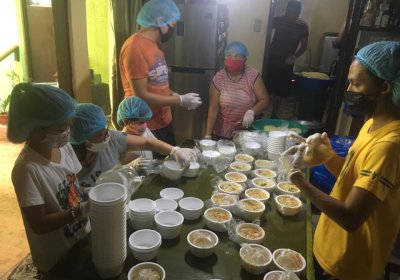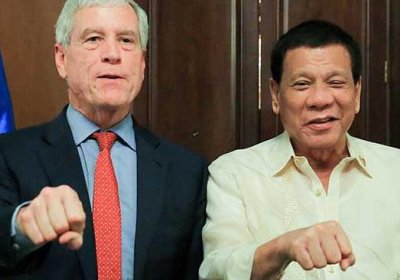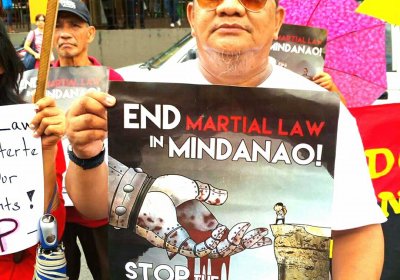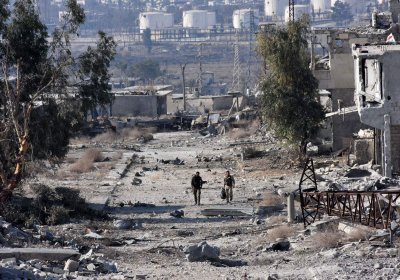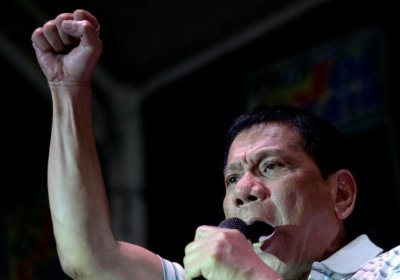Filipino activists delivering aid to communities abandoned by the government are facing daily threats, harassment and arrest. They are appealing for urgent funds to continue their work among the urban poor, writes Susan Price.
Party of the Labouring Masses (Partido Lakas ng Masa PLM)
Since Rodrigo Duterte began his term as the 16th president of the Philippines in 2016, Filipinos and the international community have watched in horror at accounts of dead bodies found nightly in the country’s streets, linked to extra-judicial killings (EJKs).
Filipino socialist group, the Partido Lakas ng Masa (PLM), released the statement slightly abridged below on September 3 after the Australian government announced to it would send special forces to work with the murderous Rodrigo Duterte regime in Mindanao in the name of the “war on terror”.
***
The PLM demands that the Australian government withdraw the two Australian air force Orion spy planes participating in combat since June in Marawi, Mindanao, and abandon plans announced by Australian government ministers to send special forces.
Filipino President Rodrigo Duterte’s annual State of the Nation (SONA) address on July 24 reflected his government’s increasing trajectory towards dictatorship. Outside, protest marches converged on the parliamentary complex at Batasan, reflecting the growing grassroots opposition to the worsening dictatorial trend.
After burying former dictator Ferdinand Marcos’ remains at the national heroes’ cemetery and helping Ferdinand’s son Bongbong Marcos in his bid to become vice president, Duterte has now placed all of Mindanao — and threatened to place the entire country — under martial law.
Today, we may now be just one “security crisis” away from outright military rule.
The following statement was released by Filipino socialist party Partido Lakas ng Masa (PLM) on May 25 in response to the government's May 23 declaration of martial law in Mindanao for a 60-day period.
* * *
Thirty-four students of the Cavite State University (CvSU) in Silang, in the Filipino province of Cavite, have been sued for libel by school administrators. In response, the start of the second semester was met with a mass protest against harassment, irregularities and the deterioration of the educational system.
The statement below was released by the Party of the Labouring Masses (PLM), a Filipino socialist group, on December 14.
***
The bombs are falling on Aleppo as we issue this statement and the people of Aleppo are sending their final messages and last minute appeals to avert what can only be described as genocide by a brutal regime against its own people.
 Ating Guro vigil outside Comelec office. Manila, May 27. Photo: Partido Lakas ng Masa.
Supporters of the Ating Guro (Teachers Dignity) partylist held a three-night vigil outside the offices of the Philippines Commission on Election (Comelec) on May 24, to protest apparent irregularities in counting votes after the May 9 general election.
Ating Guro vigil outside Comelec office. Manila, May 27. Photo: Partido Lakas ng Masa.
Supporters of the Ating Guro (Teachers Dignity) partylist held a three-night vigil outside the offices of the Philippines Commission on Election (Comelec) on May 24, to protest apparent irregularities in counting votes after the May 9 general election.
 A secene from the peoples' power' uprising that ousted the US-backed Marcos dictatorship 30 years ago.
The EDSA Uprising of February 25, 1986, overthrew the Philippine's brutal US-backed dictatorship of Ferdinand Marcos. The uprising was named after the Manila thoroughfare where events unfolded. It is often known as “EDSA 1” to distinguish it from later uprisings that occurred in EDSA.
A secene from the peoples' power' uprising that ousted the US-backed Marcos dictatorship 30 years ago.
The EDSA Uprising of February 25, 1986, overthrew the Philippine's brutal US-backed dictatorship of Ferdinand Marcos. The uprising was named after the Manila thoroughfare where events unfolded. It is often known as “EDSA 1” to distinguish it from later uprisings that occurred in EDSA.
- Previous page
- Page 2
- Next page
